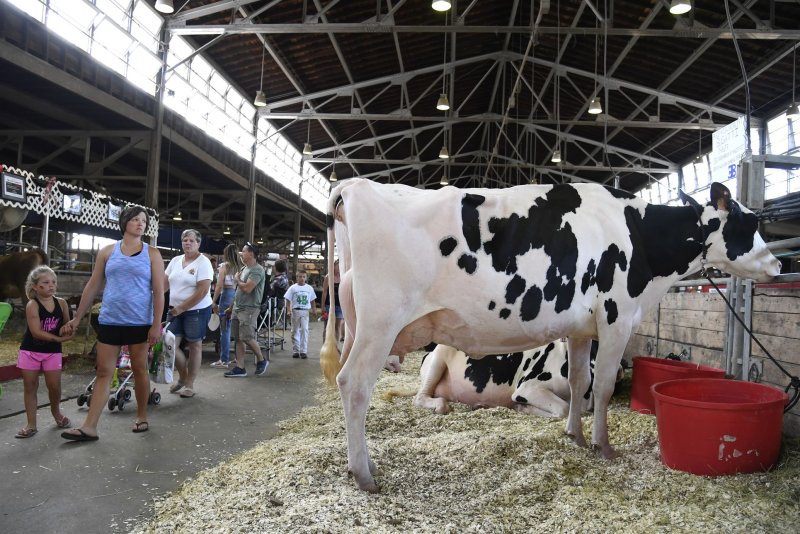The phase one trade deal with China could increase exports of U.S. dairy products. File Photo by Mike Theiler/UPI |
License Photo
EVANSVILLE, Ind., Jan. 17 (UPI) -- With the phase one trade deal signed this week between the United States and China, the U.S. dairy industry hopes to increase milk exports.
If that happens, it could bolster milk prices, potentially saving struggling dairy farms across America.
"It is likely that China will buy a lot more dairy products," said Jaime Castaneda, senior vice president of policy strategy and international trade at the National Milk Producers Federation in Arlington, Va. "But we just don't know if they will or not."
That sentiment is expressed by all farming sectors in the wake of Wednesday's signing ceremony. China promised in the pact to buy $40 billion of U.S. agricultural products annually -- nearly double the amount it had been buying before the trade war.
But China hasn't defined what products it intends to buy. So while the agricultural purchases could be a windfall for some farming sectors, others could be left out.
"We are going to do everything we can to get China to buy more of our dairy products," Castaneda said.
Dairy industry representatives said there is reason to believe China will turn to milk to help meet its quota under the pact with the United States.
Before the trade war began, China was America's third-largest buyer of dairy products, said Bob Cropp, an emeritus professor at the University of Wisconsin-Madison's Department of Agriculture and Applied Economics. Those purchases were mostly cheese and whey, a byproduct of cheese-making.
"Whey is high in protein, and they use it mostly to feed pigs," Cropp said.
Whey was among the many agricultural products hit with high retaliatory tariffs when the trade war began in July 2018.
The price for whey dropped by 40 percent, which pushed milk prices down considerably, Cropp said.
That blow came at a time when farmers already were struggling. Milk prices fell in 2014 below the level at which many farmers could make a profit, and prices still were low four years later when the trade war began.
Thousands of dairies have gone out of business since 2014, and more continue to close every month.
Recently, milk prices have started to rebound, in part because as more dairies close, the volume of milk being produced drops. Supply-and-demand forces then drive prices up.
"Now, if China starts buying whey and cheese again, it will have a very positive impact on farmers' milk prices," Cropp said.















